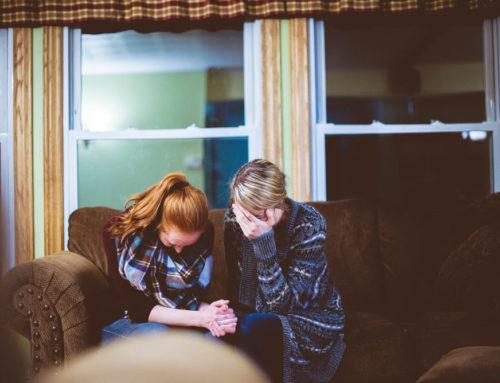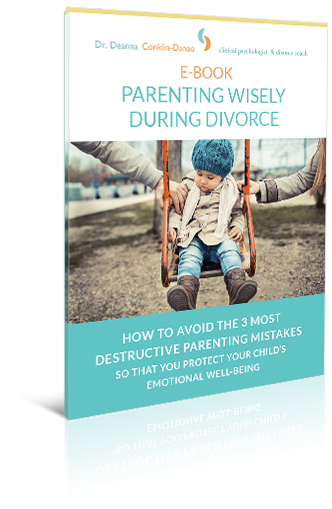For recently divorced parents, the New Year is an opportunity to improve co-parenting. With that in mind, let’s set three post-divorce goals for the New Year that will help you heal yourself and your co-parenting relationship.
Resolution #1: Engage in self-care.
If you are just starting down the path of single parenting and the stressors associated with juggling work and family, remember the airplane oxygen mask message: “Put on your own oxygen mask before assisting others.” You can’t take care of other people if you don’t take care of yourself first. It’s not selfish, but rather critical to avoid burnout.
What is self-care? Self-care is physical, emotional, and social. Physically, it’s getting enough sleep, exercise and eating well to stay healthy. Nothing works when you are sleep deprived, feel low on energy or are hungry.
Emotional self-care is recognizing and coping with your feelings constructively. When you are coming out of a divorce and experiencing strong emotions – such as pain, sadness, anger and fear – finding healthy outlets for these feelings is critical. For some people, journaling or exercising are ideal outlets. For others, professional support, such as therapy or a divorce recovery group, is needed. If you notice you are using unhealthy coping strategies, such as alcohol or drugs, to get through this period, make sure you get the help you need.
Another component of self-care is staying socially connected. After a divorce, it’s particularly important to connect with people who are truly supportive and non-judgmental. If you are trying to create a new life, it is not helpful for friends or family to berate your ex-spouse. Remember to get together in person, not just virtually, to feel connected with your support system.
Resolution #2: Be a good CO-parent.
I deliberately emphasized the “co” in co-parent because research clearly shows that kids do best when they have a positive relationship with both parents following a divorce (Disclaimer: this assumes that neither parent is abusive). While it’s helpful if your co-parent also buys into this resolution, you can also take the high road in stressful interactions.
Some tips for being a good co-parent:
- Assume your co-parent is doing their best and wants the best for your children.
- Be respectful in your co-parent interactions, whether in-person or over text/phone/email.
- Don’t put your kids in the middle of adult problems. Kids should not be messengers or feel that they have to choose sides.
- Encourage a positive relationship with the other parent. Get excited about the fun things they do together and don’t automatically take your child’s side if they complain about the other parent.
- Be flexible. If your ex-spouse has a family event that comes up during your parenting time and you don’t have any plans, let the kids go with him/her. This builds up good will and hopefully will also allow you to ask for adjustments for special events.
Every divorcing couple I work with wants to protect their kids emotionally during the process. Allowing kids to have and express their emotions during and after the divorce is important for their healing.
Some kids have strong reactions during the divorce process, while some kids have a delayed response. Too often, kids worry that if they express their sadness, anger or fears, that they will burden a parent who is already struggling. Encourage your kids to talk to you and others in their support system about their feelings. If your child seems hesitant, you can use books or movies as a helpful starting point.
Going back to resolution #1, if you recognize that you don’t have the emotional capacity to help your children explore their feelings, then find a child therapist or kids divorce group so they have an outlet. You are modeling healthy behavior for your kids when you show them how to reach out for help when they need it. There is research that says kids cope better with divorce when they have a neutral person to talk with about their feelings.
My wish for every parent post-divorce is that they go on to create a positive life for themselves and their children. There’s nothing magic about January 1st, so you can implement these resolutions any time in order to move yourself forward and heal from your divorce.
See more at: Divorce Magazine.








Leave A Comment